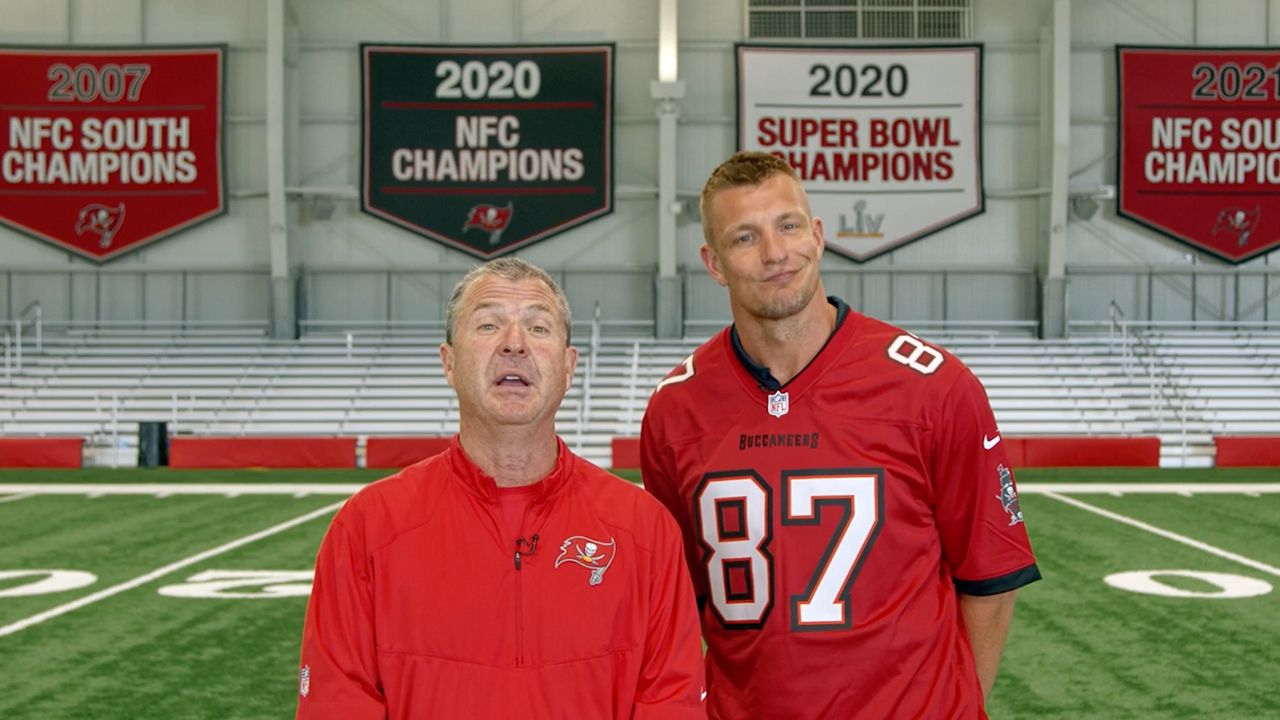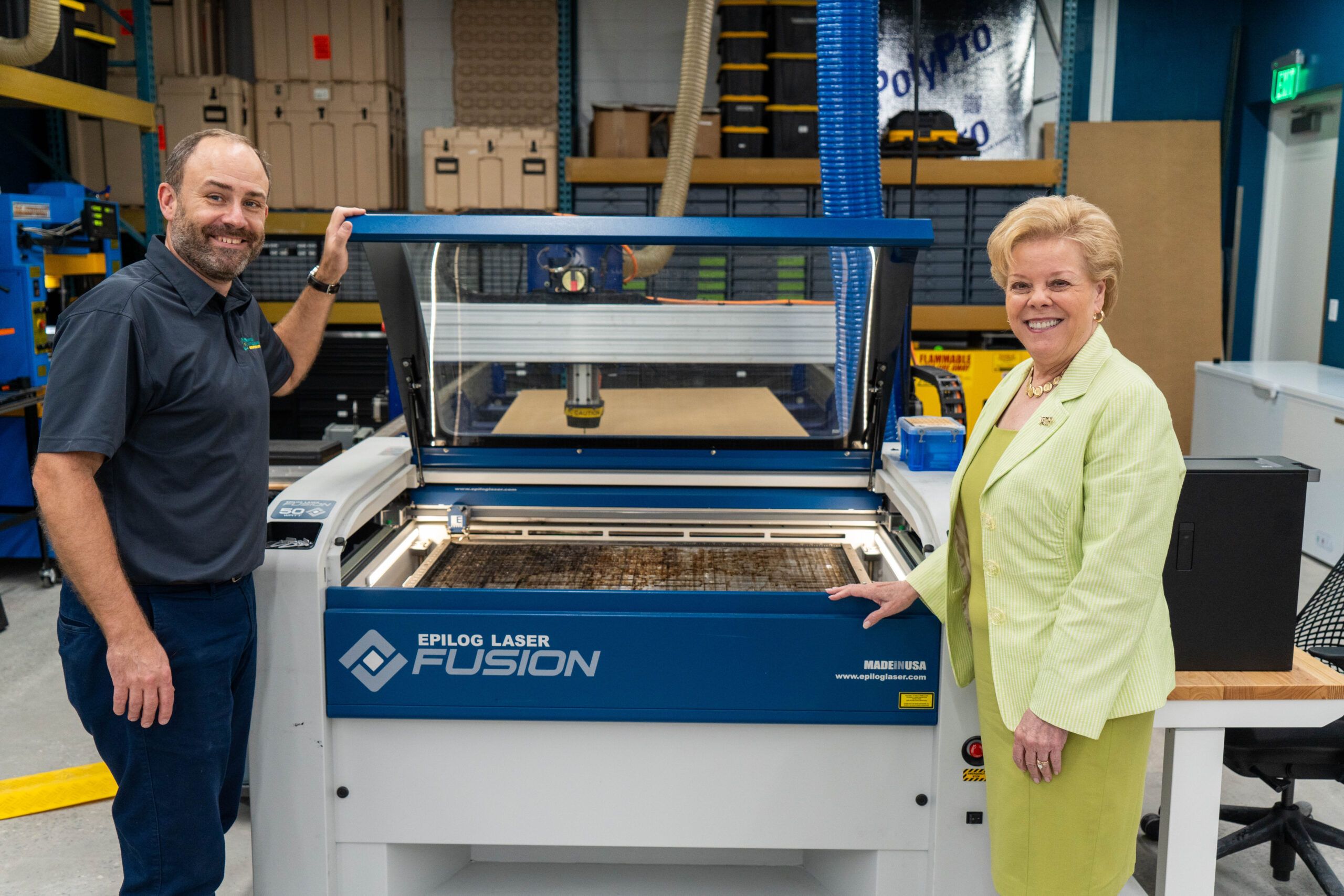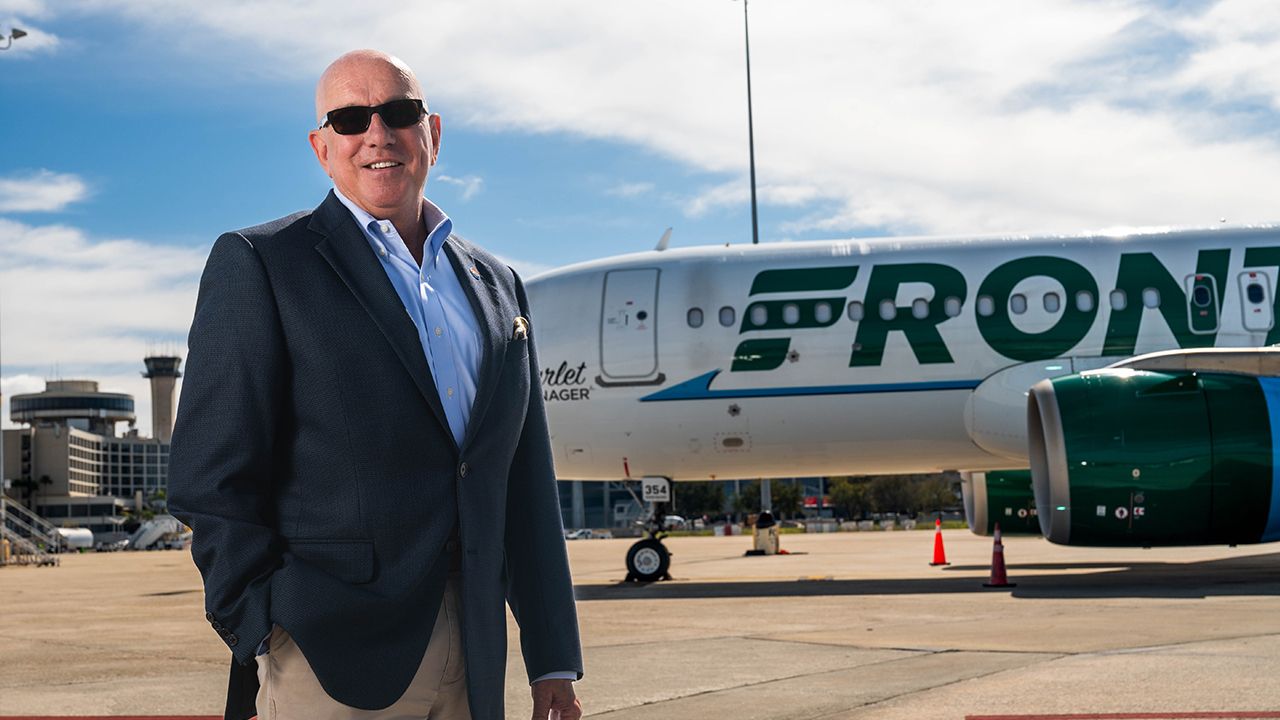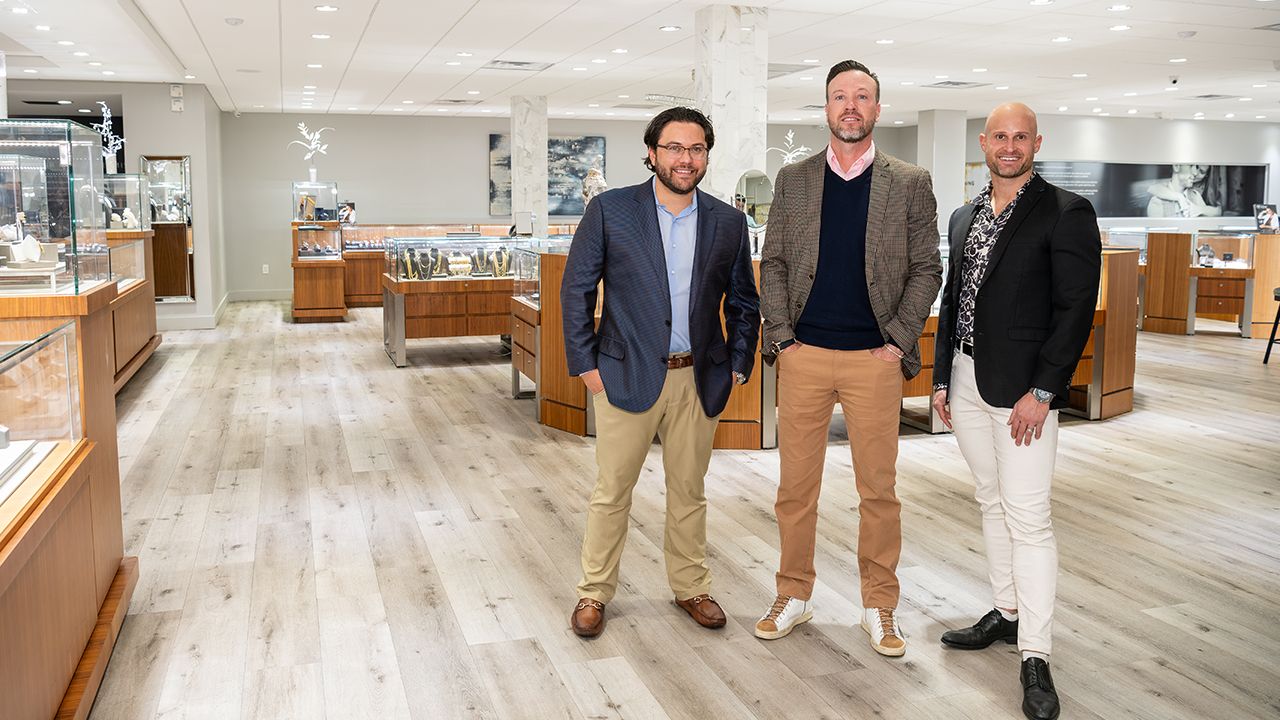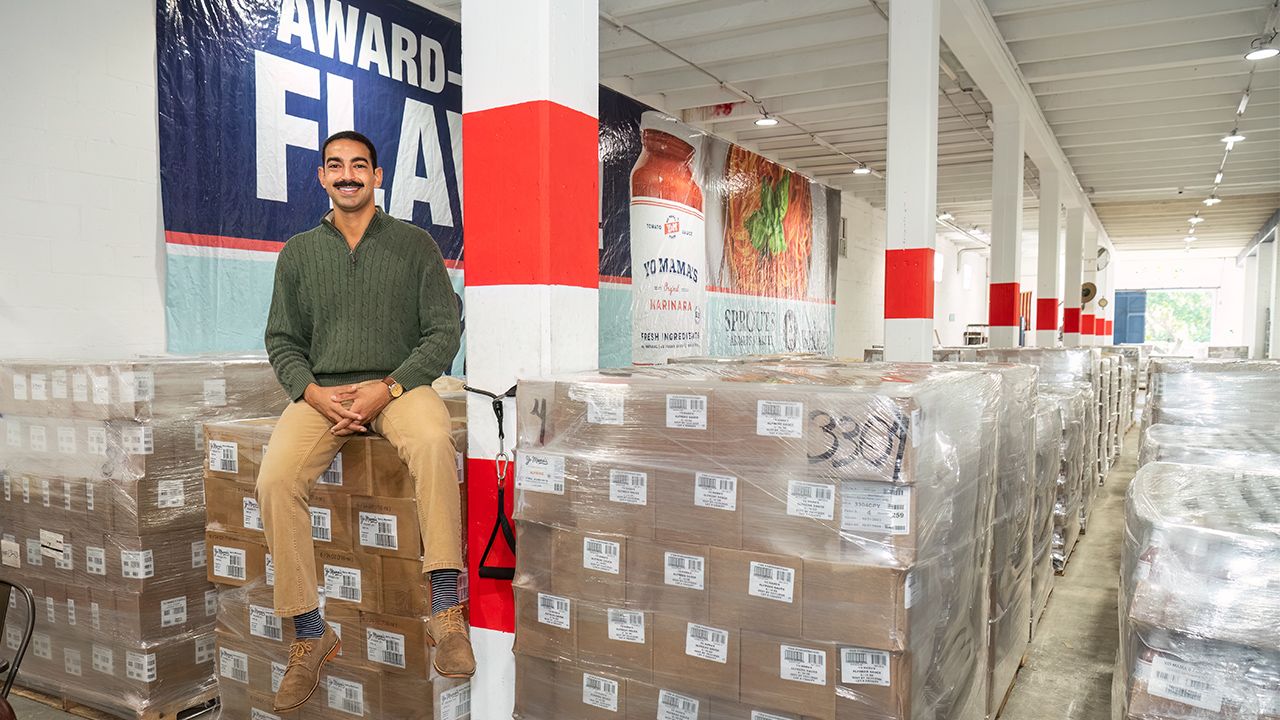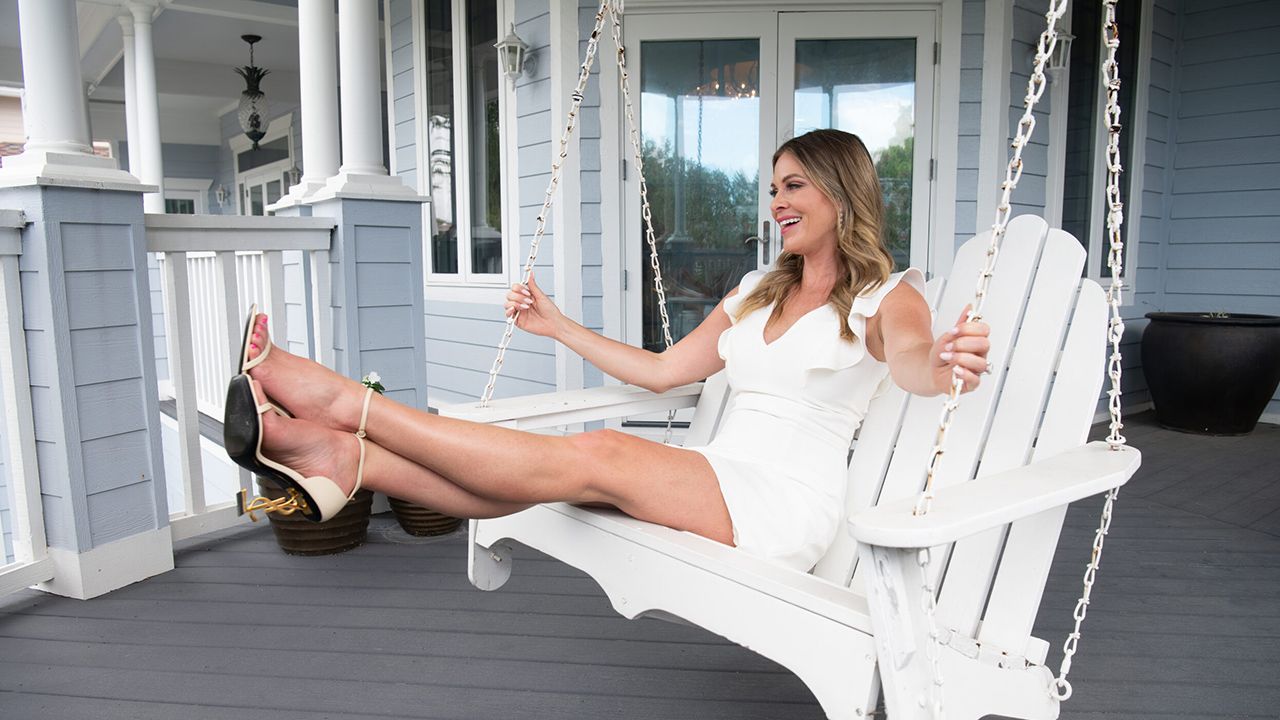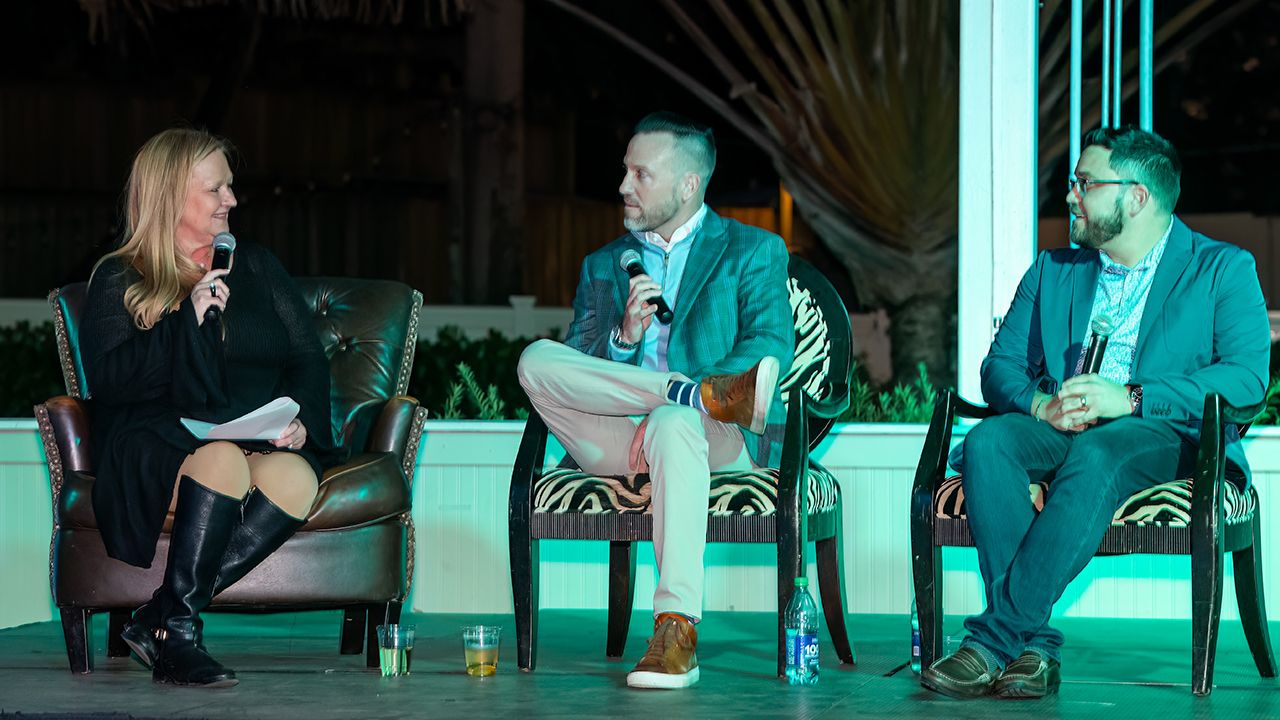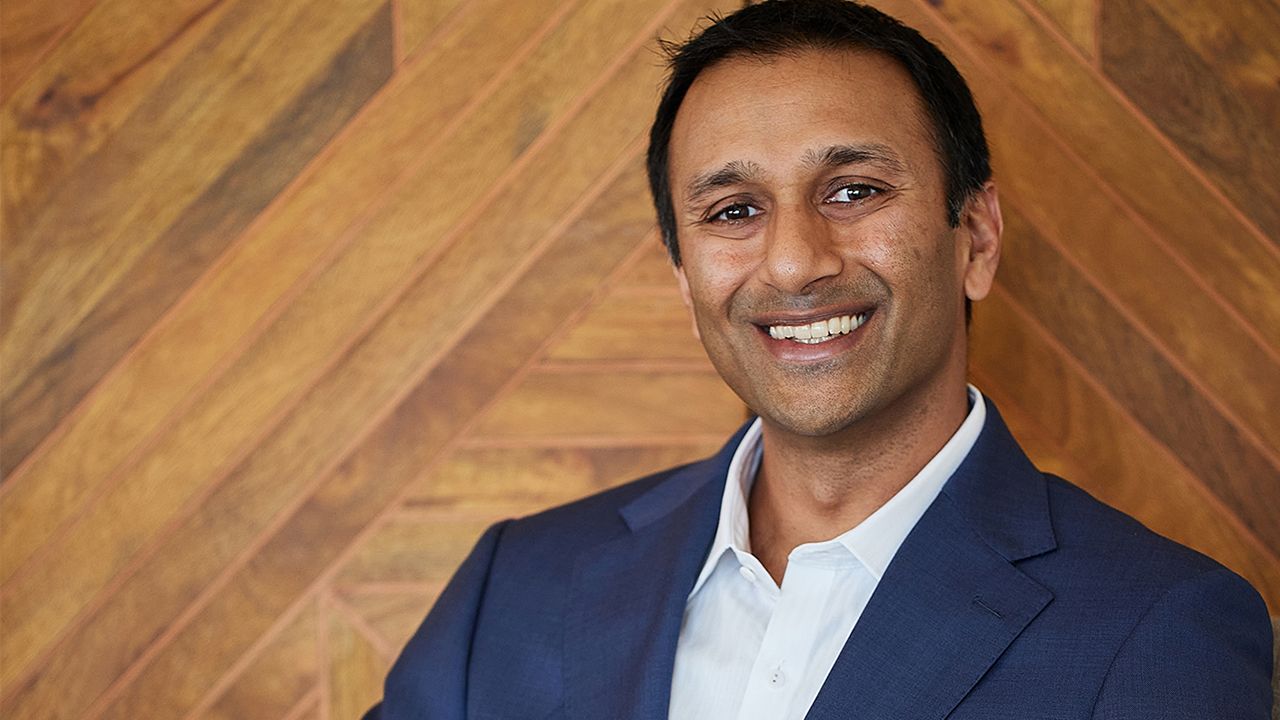Joy Gendusa says she was a ‘ne’er-do-well’ young person. This self-deprecating style of humor couldn’t be more genuine, or endearing, than it is coming from her. With her perseverance, and tenacity, it’s hard to believe it was ever true.
Nevertheless, it certainly couldn’t be attributed at this point in her life.
Gendusa used her wits to establish her own business, run out of her home, in 1994 and launched PostcardMania in 1998. Fast forward 23 years and she is CEO of that company. In 2021 the company, which has evolved into a full-fledged marketing company, will break $80 million in revenue, employs more than 300 people and represents more than 100,000 customers in more than 350 industries.
Featured on the Inc. 500 and 5,000 lists, this Clearwater-based staple, nor Gendusa, has anything to prove to anyone, anymore.
THE MANHATTAN MISFIT
Born at Mount Sinai Hospital in New York, New York, Gendusa grew up as a younger sister, by 17 months, with two “validating and uplifting” parents. The family moved to Oceanside, Long Island when Gendusa was 6 years old.
“My parents had a beautiful relationship,” she says, adding that she never heard, or saw, them fight in all her years. Well, at least what most people would consider fighting.
“One time, my mom had her arm out the window of the car and my dad started putting the window up. And she said, ‘Bernie, I asked you not to do that to me.’ And that was the only ‘fight’ that I ever heard,” she says with a laugh. “I don’t know if they disagreed. They probably did. But they kept it behind closed doors and they were just super respectful of each other. And they had a great time.”
Gendusa says she always felt like a misfit somewhere in her “Leave it to Beaver”- type household.
An artist from an early age, she gravitated toward creative endeavors and pushed boundaries on expectations, yet her parents never wavered in their support, and acceptance, of her and her self-described “misfit” ways.
“My parents were so amazing. They were so validating and uplifting. I was the worst kid. I was horrible,” she says. “I was a terrible teenager.”
Gendusa was attending the High School of Art Design in New York City, the same school as fashion icons like Marc Jacobs and Calvin Klein, when she made the decision go in a different direction.
“I [dropped out] for such a great reason. I basically would cut out of school so much that they told me I had to go to summer school to finish and I was like, yeah, I’m not doing that,” she says. “When I dropped out of high school, I didn’t want to ‘drop out.’ I wanted to be signed out. My mom came and agreed that it was probably the best thing for me. They never made me feel terrible about it.”
While the constraints of high school didn’t fit into Gendusa’s plans, it wasn’t as though she lacked a work ethic. She had a serving job, learned how to do word processing, took a typing class and eventually was able to start accepting temporary gigs.
“Funny enough, every temp job that I had I was always the favorite because I had no ego about it. You want coffee? You need me to go shopping for your wife’s birthday present? I would stay until all my work was done. I had this incredible work ethic,” Gendusa says. “I probably got it from my dad.”
Like many women before her, and many women to come after, she met a man, fell in love, married him and followed him to a new place, much further south — Clearwater, Florida.
While that marriage didn’t last long, she welcomed her first son, Zach, and found a new home through the experience.
“I grew up playing outside and riding my bike everywhere. I felt like Florida was where I could raise my son,” she says.
THE ‘MIDDLEWOMAN’
Before there was PostcardMania, there was a small graphic design and print brokering business Gendusa ran out of her home, for four years prior.
“There’s starting my own business. And there’s starting Postcard Mania, which are two different things,” she says.
She remarried and had her second son, James, while holding a few random jobs until she began selling vacation packages at a call center operator.
“I would follow the script, exactly, because it worked. The people who wrote it had been there, done that, and it’s interesting, even for my company, because that’s how we are. We know exactly how to sell marketing campaigns,” Gendusa says. “When you put too much of your own spin on it, you’re just not going to sell as much. You’ll still make money, but you won’t make as much money. It was a very interesting life lesson for me.”
The turning point for Gendusa and her yet-to-be-established marketing powerhouse, PostcardMania, was when she began working for a printing company.
With a young son to care for, a baby who didn’t need the fumes of the printing press environment, she opted to work from home.
“I lived next door to a classical illustrator. She taught me so much more about graphic design and I started doing projects for her, at home, as my first freelance client. I started getting better, and better, at graphic design. I started getting people who knew me that would ask for me to do things for them. I would do graphic design for random business people around the downtown Clearwater area corridor,” she explains.
Gendusa saw an opportunity to become the “middleman” for brokering printing services.
“I would shop the printers, and choose the printer, but give the client quotes to choose from. I would mark it up 20% but would tell them, ‘I guarantee you’re still going to pay less with me doing all the groundwork for you because they’ll smell you a mile away and they’ll pad the price,” she says. “In my heart of hearts, that was where PostcardMania started.”
Scaling her growing business presented a challenge. She couldn’t grow without expanding her team, she couldn’t pay people if she couldn’t grow. The proverbial chicken and egg conundrum that countless other startups experience over and over, again.
“I had in my mind that there was a better way to do this, but I wasn’t sure what it was,” she says. “I wanted to promote my business, so I ordered some postcards.”
THAT POSTCARD LIFE
Gendusa received marketing materials from a postcard company that offered an extremely affordable option, in her opinion.
“They had postcards for only $425, for full-color postcards, for 5,000 of them and I was like, this doesn’t even make sense. I don’t even know how they’re doing that. I mean, I understood printing,” she says.
She ordered a batch, designing the card herself, put it on a CD-ROM, as one did in the late nineties, and overnighted it via FedEx.
When she got the proof back, she noticed, in very small print, the printing company’s 1-800 phone number on her design. That wasn’t going to fly for Gendusa. She made a call to get the order corrected but learned they would charge her an additional fee to remove the number.
“I said to myself I’m going to print postcards, directly, for small business owners and I’m not going to charge people to take my phone number off. I’ll give better customer service, and listen to them, and that’s pretty much how [PostcardMania] was born,” she says.
In the first six months, PostcardMania did $600,000 in revenue and the next year $1.2 million.
That’s not to say there weren’t growing pains. For one, the digital revolution that happened at the turn of the century.
“The Internet became an obstacle because large commercial printers said, ‘Oh, look at what she’s doing, we could whip up a website and compete with her on price,’ Which is what started to happen,” Gendusa says. “When all the competitors started to pop up, we had to figure out how we were going to differentiate ourselves. We hired a full-time campaigns results analyst and started becoming more of a marketing company than selling a commodity.”
PostcardMania now does online marketing in conjunction with its direct mail campaigns, which they call Everywhere Small Business. This service got so much traction that it was spun off as a SAS company called Direct Mail 2.0. This company focuses on matching digital ads to direct mail for printing companies all over the U.S.
“And then we added Facebook, then we added Instagram, then we added YouTube, Gmail, like all of these different things to this one campaign, it was a fully rounded campaign that took the small business owner from, ‘I don’t know what I’m doing to, I’m getting leads. This is amazing,’” she says. “My purpose is to help small businesses. I love them. I love entrepreneurs. And there’s a certain kind of hustle I admire about them.”
PostcardMania has a fairly vigorous hiring process. Office politics aren’t welcome, negative chatter isn’t tolerated and Gendusa says the company is purposeful in those efforts. Negative Nancy’s need not apply.
“One of the reasons I started my own business, to begin with, was because I hated office politics,” she says matter-of-factly. “For me, personally, if it’s not fun I don’t want to do it. I’m never going to be super serious, and hot under the collar, about stuff. I can get riled up about something but it’s pretty much over in like a minute.”
One thing Gendusa is clear on, when addressing her success, is that it is not just her success. It’s the team that she gives the credit to.
“I have an incredible team…I feel like when there’s an article about me, I feel a little bit guilty. There’s no way on earth that this is just my thing,” Gendusa says. ♦

GETTING PERSONAL WITH JOY GENDUSA
ON HER LOVES
Gendusa says her husband of 18 years, Sam, is her rock and her best friend. “He’s been so influential to me,” she says.
Their home in Clearwater boasts an impressive wine cellar, one of her indulgences. They also enjoy their home in Georgia and traveling. “I was broke, for a good part of being an adult. For me, I enjoy that I don’t care what things cost and I don’t look at price tags.”
ON SCIENTOLOGY
Gendusa is a dedicated member of the Church of Scientology, and dedicated to her Judaism roots, she says.
“Scientology is not as mysterious as the community thinks it is,” she says. “For me, it is the reason I’m successful. Me practicing the tenets of Scientology is what made me able to go from being that wayward teenager to a successful entrepreneur, and parent and wife. I’m successful at my business, but I’m also successful in my personal life. And it’s because of what I’ve learned in Scientology. If I can give you some information about Scientology, the most important things are communication and ethics. It’s living a life you can be proud of and being honest.”
ON PHILANTHROPY
“It’s one of my favorite things to do, honestly,” Gendusa says about giving back.
PostcardMania never turns down a nonprofit’s request for help with direct mail.
“We don’t charge them anything for it. To the tune of millions of free postcards to hundreds of different organizations around the country. We don’t pay their postage, but we’ll print and we’ll do the graphic design and get them mailed.”
Gendusa, and her husband, also support charities like St. Jude’s Children Hospitals, Shriner’s, Turning Point USA, Citizen’s Commission on Human Rights International and Tunnel to Towers.
For Gendusa, personally, she’s been involved in the Community Learning Center in Clearwater. She is a board member and was chairman for many years.




